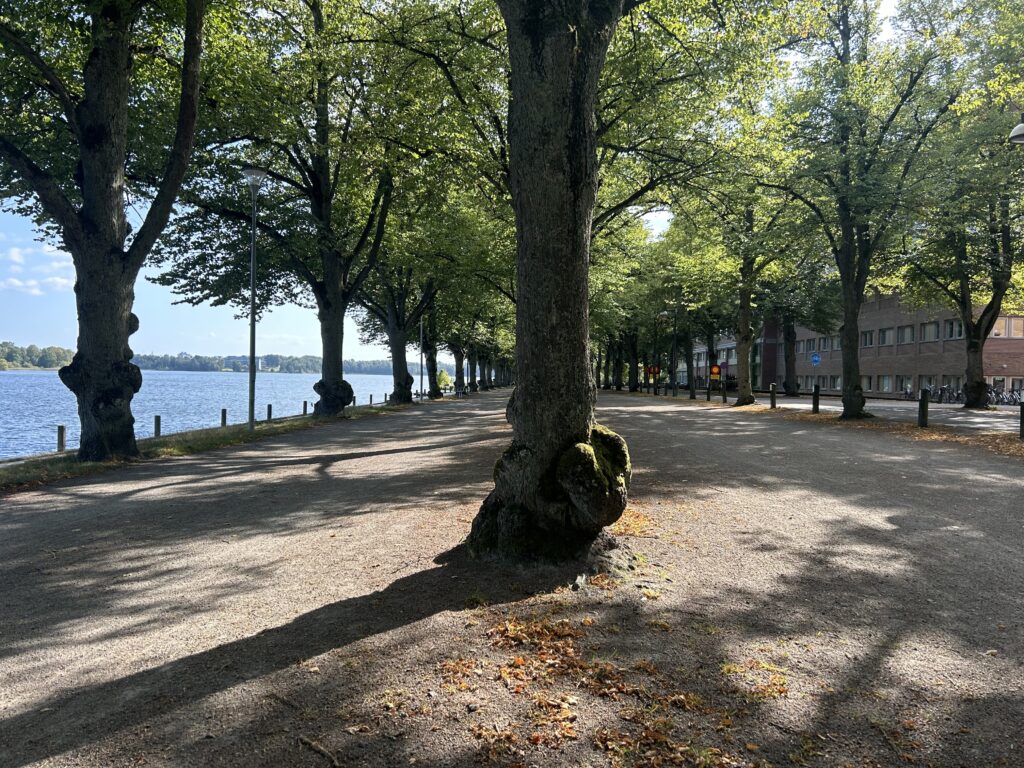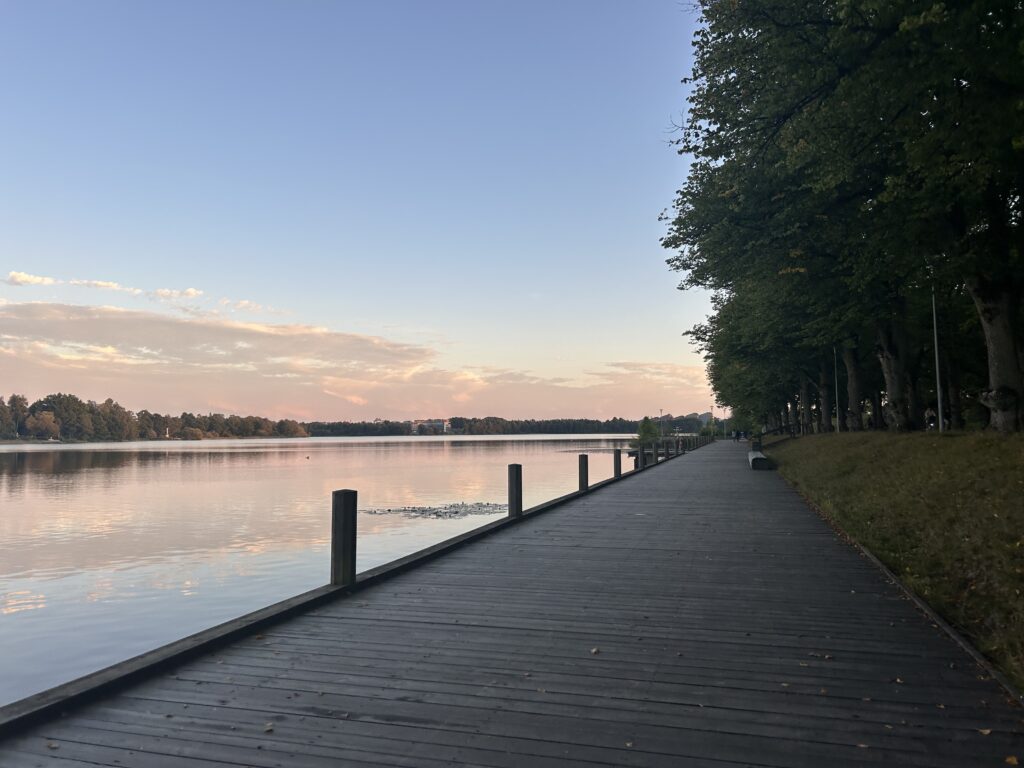Why Sweden?
The most common question I get asked as a study abroad student is, why did I pick Sweden? The response has multiple facets, transversing personal beliefs, academic goals, and a life-long curiosity for all things Scandinavian. However, the short answer is that Sweden felt right for me as a person who is guided heavily by intuition. Although not many study abroad students go outside Western Europe, I knew that I wanted an unconventional experience that would represent who I was. There are many wonderful experiences to be had in Western Europe, but going to Sweden, and now being here, offers me an unmatched opportunity to explore more about myself, my academic goals, and more importantly my life goals. Because Växjö is a small city in the Kronoberg County of southern Sweden, I get the chance to life like a local Swede. Växjö has 66,000 inhabitants, but it still feels like a quiet community. Since Sweden has so many small towns and cities spread across the country, not many people outside here know what and where Växjö is, and that means that there are relatively few tourists here. This has allowed me to glimpse what small-city Swedish life is like, and to observe the culture, language, and society unfiltered.


Top image: View of biking/walking lanes near Växjö Lake and City Centre. Bottom image: Wooden-board walking area around Växjö Lake. It takes around 35-45 minutes to walk around.
While Sweden is not for everyone, it can be a transformative location for those who are drawn to a slower pace of life, solitude, and peace. A large part of Swedish culture is their connection to nature, and finding solace and peace in being in nature. Sweden has thousands of lakes, forests, islands and opportunities to engage with it, which can translate to a walk out in the snow-covered woods in winter, or a stroll by one of the various lakes as pictured above. As someone who enjoys travelling, Växjö, Sweden is also a two-hour train ride from Copenhagen, Denmark, where you can catch a flight to nearly anywhere you want. I love the location, because I am far enough away from the hustle of typical European cities, but close enough that when I want to go, it’s very accessible by train, plane, or bus.
Let’s be Real
The first day I arrived, I was jet lagged and exhausted. I flew from the U.S. to Frankfurt, Germany, then from there to Copenhagen, Denmark and finally from there to Sweden by train. After all that travel, the next train to Växjö left me and my other suitcase, as well as one other group member behind. As I was turning around to put my other suitcase on the train, the doors closed, and it left the station. The next train had another hour’s wait, and to make matters worse my handle broke on my heavy luggage. It was my first day, and most of my travel group was gone along with half my personal belongings. It’s moments like these where you need to have realistic expectations about how the experience is going to go, because mistakes will happen. People love to talk about how amazing studying abroad is, but it’s also important to discuss being comfortable will failing. I certainly did on my first day. Coordinating a trans-continental move is stressful, and at first overwhelming, but not impossible. Being organized, adaptable and resilient are important characteristics too keep in your emotional toolkit, and although studying abroad is a life-changing and thrilling adventure, being grounded in your expectations is also necessary. As a perfectionist it was challenging for me to go through these things, because I wanted everything to go seamlessly but my expectations were not realistic in that moment. I have made many other mistakes after only a month of being here, but now I am not as stressed about them because mistakes are supposed to happen. Being comfortable will failure is an overlooked but critical component of adjusting to life and traveling while abroad.
Final Remarks
I arrived a little over a month ago and can describe it as nothing other than a roller coaster ride. There are going to be ups as well as downs, but that is all natural and necessary to grow. If you are thinking about studying abroad and are ready to challenge yourself, have an honest conversation about why you want to go, what you hope to get out of it, and how a specific location would mesh with your goals, limitations, and expectations. Whether you are someone like me that picked a specific place for specific reasons or someone who’s fine going anywhere, studying abroad is an opportunity nonetheless of almost limitless growth and one I highly encourage.
Ava C., a Global Studies, Anthropology, and Sociology major, is studying language and cultural studies at Linnaeus University in Växjö, Sweden.

Comments are closed.